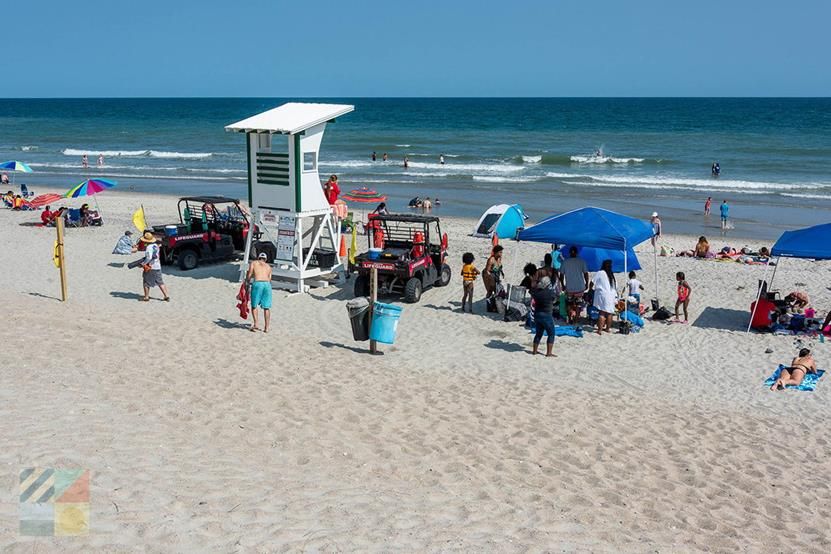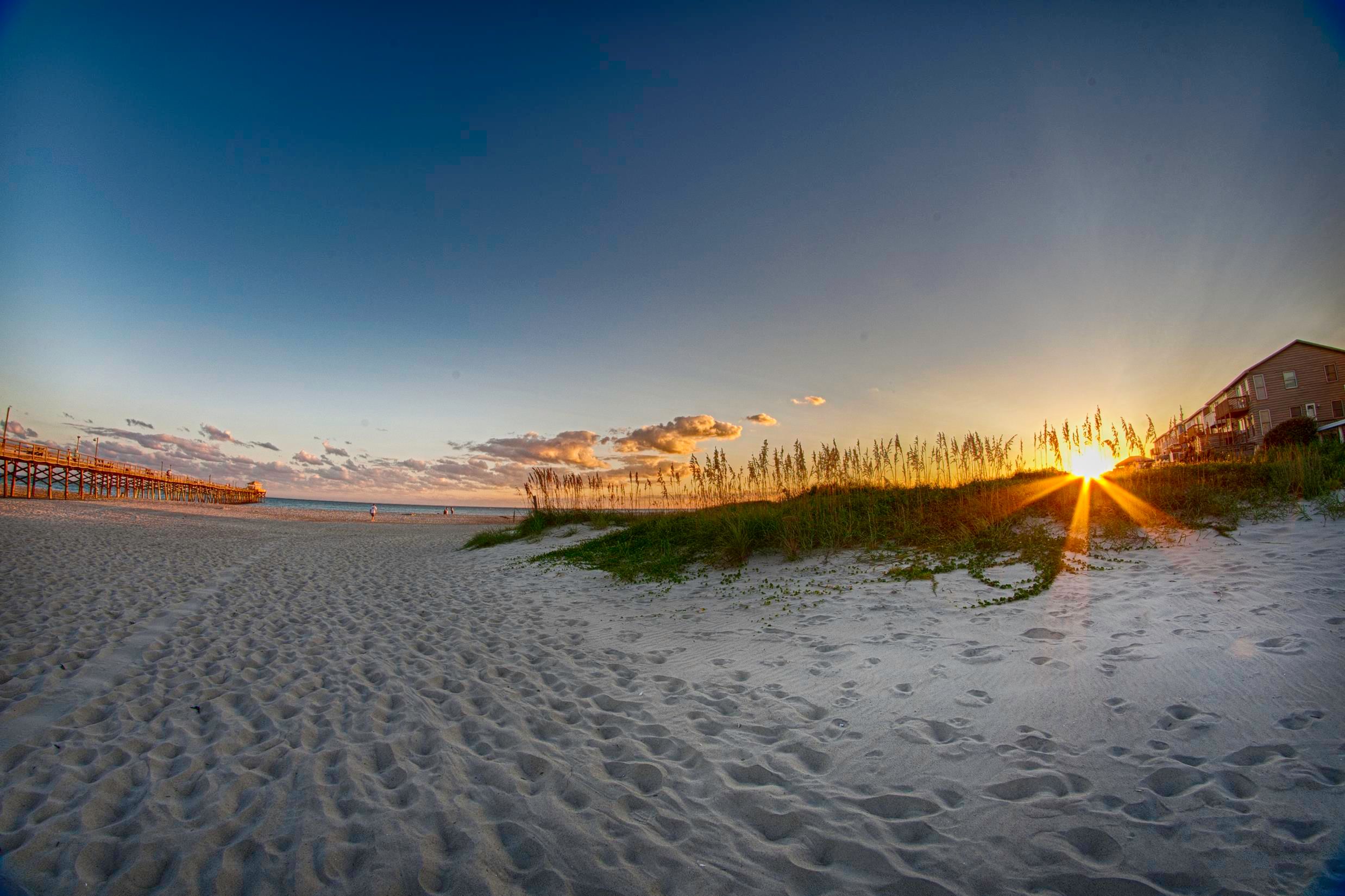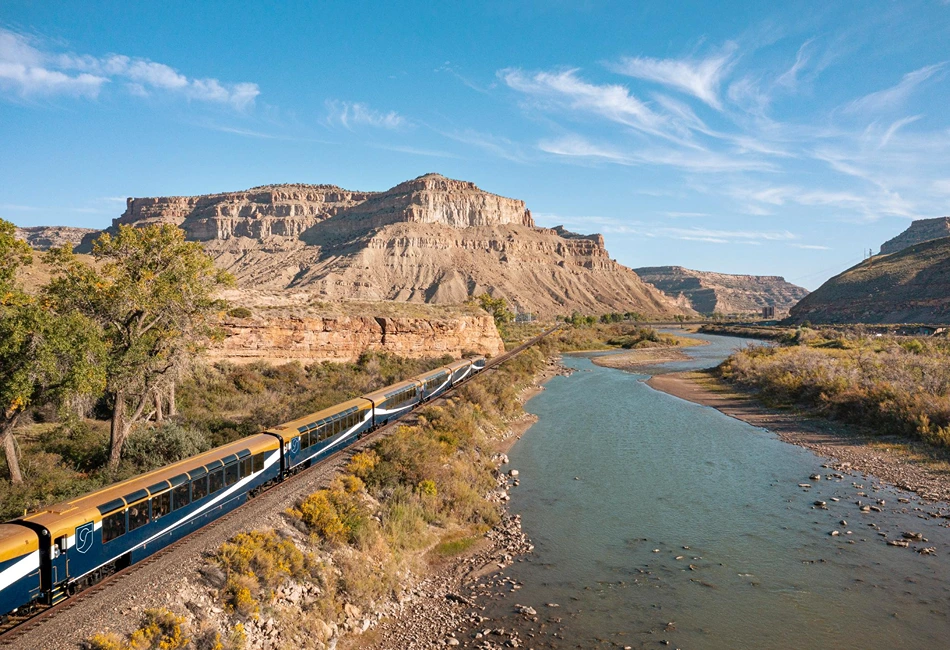Outdoor NC provides tips for best practices for enjoying the great outdoors
In the years of the global pandemic, more people than ever before have been eager to get outside and seek respite in outdoor spaces. North Carolina saw an influx of first-time explorers, many of whom were ill-equipped with the tools to interact with nature in ways that minimize their footprint.
In seeing this need for outdoor education, Visit North Carolina and N.C. Outdoor Recreation Industry Office approached the Leave No Trace Center for Outdoor Ethics to create a partnership centered around the sustainable enjoyment of the state’s mountains, beaches, and other vast natural areas to create Outdoor NC. This online resource aims to promote the state’s natural tourism and provide tips for best practices so that it can be properly enjoyed for years to come. This is the first Leave No Trace program on the East Coast.
“Preserving the state’s natural beauty is a shared responsibility,” said Heidi Walters, senior director at Visit North Carolina. “These nature-loving travelers become part of the solution as models, teachers, and advocates for sustainable enjoyment of our natural riches.” The program is centered on seven main principles that help guide a tourist’s plan in accordance with ethical exploration.

Visit North Carolina and the N.C. Outdoor Recreation Industry Office approached the Leave No Trace Center for Outdoor Ethics to create a partnership centered around the sustainable enjoyment of the state’s mountains, beaches, and other vast natural areas to create Outdoor NC.
Plan and prepare
The tourism office urges visitors to plan ahead for their visits by choosing lesser-known areas or avoid areas of high use. Learning about the regions one plans to explore will help tourists come prepared with the knowledge of park rules and regulations.
Stick to trails and overnight right
Trails are designed to help keep tourists from damaging trailside plants. When there are no trails, stick to areas that already show use and stay within your skill level.
Trash your trash
Some litter can take millennia to decompose and can adversely affect wildlife that comes into contact with it. Pack up all trash and dispose of it properly.
Leave it as you find it
Laws prohibit the removal of natural objects from national parks and other protected places. Snap photos instead of picking or collecting.
Be careful with fire
Wildfires can be catastrophic for protected natural areas. One must check local regulations, secure a permit if needed, keep the fire small, and burn the wood to an ash to avoid a high risk of a wildfire.

With 41 state parks, 10 national parks, and four national forests, there is no shortage of adventure to be had and breathtaking views to be seen in North Carolina.
Keep wildlife wild
When observing wild creatures, keep the distance to avoid undue stress and harm. Avoid feeding wild animals or leaving food scraps within easy access while camping.
Be considerate of others and share the outdoors
People exploring the outdoors in North Carolina will come from a multitude of skill levels and abilities. Respect others to create a safe space by being mindful of noise level and be considerate while passing others on the trails.
Outdoor NC invites nature tourists to sign the pledge to #makeityournature to follow these principles on their next adventure in the great outdoors. Thousands of website visitors have signed the pledge thus far, as have N.C. State Parks, the U.S. Forest Service, and a multitude of destinations across the state with high tourism traffic.
With 41 state parks, 10 national parks, and four national forests, there is no shortage of adventure to be had and breathtaking views to be seen in North Carolina. You can soar above the trees in a hot air balloon ride in Raleigh. Finally, check surfing off your bucket list by learning from the best at Surf City Surf School. Or, spend the night under the starry sky in the Great Smoky Mountains or Blue Ridge Parkway.
With an expansive directory of natural attractions, North Carolina is the premier destination for ethical outdoor tourist. And, thanks to Outdoor NC, these well-traveled destinations will be persevered for generations to come.
Main photo by Brad Styron photography, Crystal Coast, NC
By Isabella Wilkes
Explore our selection of Group-friendly Itineraries across the globe.






